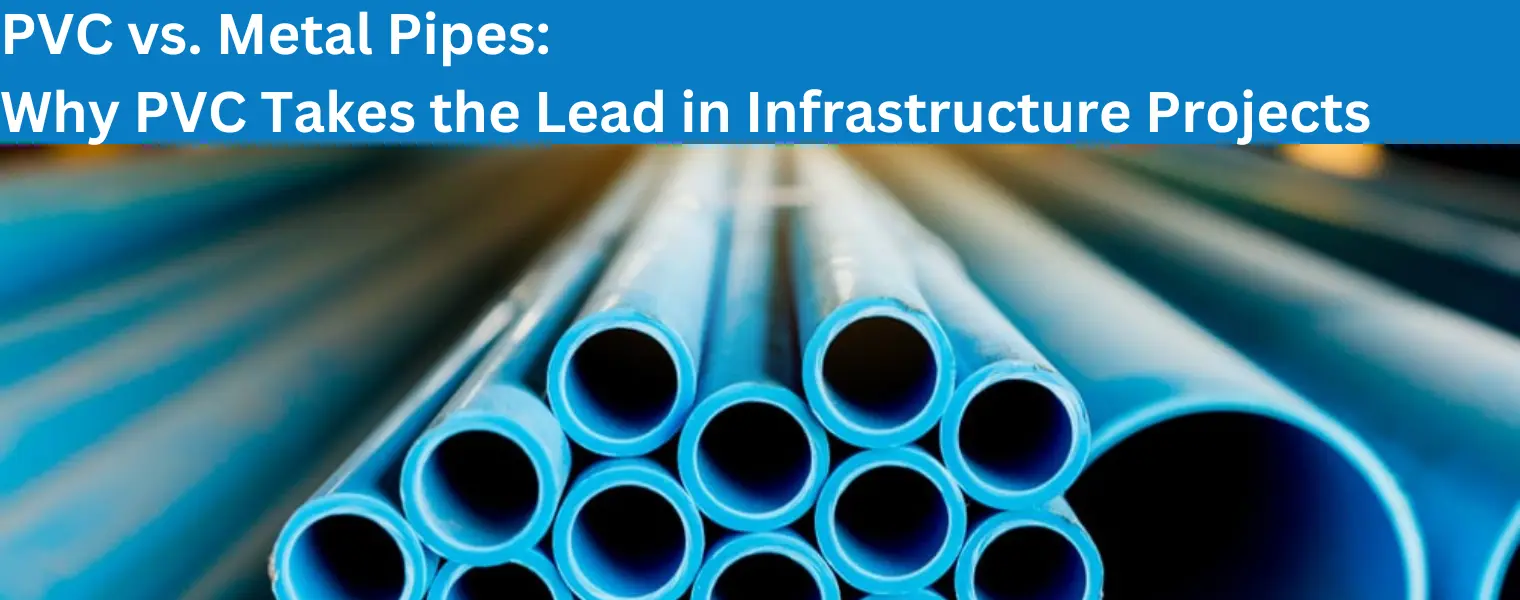
In the realm of infrastructure development, the choice of materials is pivotal in ensuring longevity, cost-effectiveness, and efficiency. One of the key debates in this arena revolves around the selection between PVC (Polyvinyl Chloride) pipes and traditional metal pipes. In recent years, PVC pipes have gained prominence and, more often than not, taken the lead in various infrastructure projects. This blog delves into the reasons why PVC emerges as the preferred choice over metal pipes.
PVC pipes are known for their cost-effectiveness compared to metal pipes. The production cost of PVC is generally lower, and this reflects in the overall cost of the infrastructure project. Additionally, PVC's lightweight nature simplifies transportation and installation, reducing labor costs.
PVC pipes exhibit impressive durability and longevity, often outperforming metal counterparts. PVC is resistant to corrosion, rust, and chemical degradation, making it ideal for underground applications where exposure to moisture and various substances is common. Metal pipes, on the other hand, are susceptible to corrosion over time, leading to structural weaknesses and eventual failure.
PVC pipes are incredibly versatile, adapting to a wide range of applications within infrastructure projects. Whether used for water supply, drainage systems, or underground conduits, PVC pipes seamlessly integrate into diverse construction needs. This adaptability is a significant advantage over metal pipes that may be limited in their application range.
PVC pipes are lightweight and easy to handle, simplifying the installation process. The ease of cutting, joining, and connecting PVC pipes accelerates construction timelines, reducing labor costs and potential disruptions. Metal pipes, especially those made of heavier materials, can be more cumbersome to install.
PVC's resistance to corrosion and chemicals is a major advantage, especially in environments where metal pipes may succumb to rust and degradation. This resistance ensures the longevity of the infrastructure project and reduces the need for frequent maintenance and replacements.
PVC pipes offer natural insulation against heat and cold, maintaining consistent temperatures in water supply systems. This insulation property can be crucial in regions with extreme weather conditions, providing energy efficiency and preventing heat loss.
PVC pipes are recognized for their eco-friendly attributes. The production process of PVC consumes less energy compared to metal pipes, and PVC is recyclable. The environmental impact of PVC is often lower, making it a more sustainable choice for infrastructure projects.
While PVC and metal pipes both have their advantages, the unique benefits of PVC, such as cost-effectiveness, durability, versatility, and environmental considerations, position it as the top preference in numerous infrastructure projects. Continuous improvements in PVC technology contribute to its enhanced performance, reinforcing its role as a dependable and effective material in constructing robust infrastructure systems—a principle consistently embraced by Polyfab. Get in touch with us for more information and to meet your PVC pipes and fittings needs.